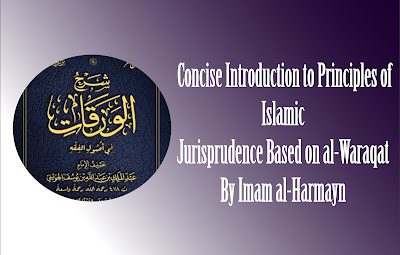90:1 I swear by this city,
90:2 and you are free in this city,
90:3 and by the begetter and that he begot,
90:4 indeed, We created man in a state of toiling.
90:5 Does he think that none has power over him?
90:6 He says, ‘I have spent wealth, abundant.’
90:7 Does he think that none has seen him?
Tafsir
90:1 I swear by this city,
Allah swears by the inviolable city of Makkah to indicate its sanctity as it houses the Sacred Mosque that all Muslims face when praying. Makkah is also the hometown of Prophet Ismael and Muhammad [peace be upon them].
Allah, Exalted be He, can swear by whatever thing of His creatures, but the created beings can only swear by Allah.
90:2 and you are free in this city,
O noble Messenger Muhammad, you are free to do what you want in this city of Makkah. You can kill whomever you want and you can capture whomever you want. Abdul Allah bin Abbas may Allah be pleased with them, said, ‘Allah gave Messenger Muhammad the freedom to kill whomever he wanted and capture whomever he wanted when he conquered Makkah and defeated the disbelievers. No one is permitted to act in such a manner after Messenger Muhammad.’
The ayah gave good news to Messenger Muhammad that he would be victorious over the disbelievers of Makkah. Allah fulfilled His promise to His Messenger on the day of the Battle of Conquering Makkah.
90:3 and by the begetter and that he begot,
Allah swears by every begetter and that he begot. This indicates the great significance of the miracle of procreation as it denotes Allah’s perfect ability.
The scholars of Tafsir mention the following opinions about the meaning of the begetter and that he begot. 1) It refers to Prophet Adam and his descendants. 2) It refers to Prophet Ibrahim and his descendants. 3) It refers to every begetter and that he begot. After mentioning the opinions of the scholars, Imam Muhammad bin Jarir at-Tabari said, ‘The correct opinion is that Allah swears by every begetter and that he begot. That is because the oath is general. It is unacceptable to restrict the meaning of a particular ayah to a specific meaning except by authentic evidence or convincing intellectual reasoning. Since there is no such evidence, then the meaning is general as Allah has made it general.’
90:4 indeed, we created man in a state of toiling.
This is a response to the oath. Indeed, Allah created man in a state of toiling. He goes through different hardships and adversities during his life until he dies. This is the case of all people whether rich or poor, rulers or ruled or righteous or wicked. They all suffer countless difficulties in their lives to achieve their goals. Al-Hassan, may Allah have mercy on him, said, ‘Allah has not created any creature that suffers like the suffering that man experiences.’
Man’s suffering begins at the moment his mother conceives him as he suffers from the darkness and narrowness of the womb. His suffering continues until he dies. Throughout his life, man experiences different kinds of adversities. He suffers from striving to secure happy life, as he needs to work to feed himself and his dependents; he needs treatment if he becomes sick; he needs someone to take care of him when he becomes old, etc. Man also needs to fulfill his obligations towards Allah, such as performing the prayer, paying the zakat, and performing the Hajj. He also needs to be patient when an affliction befalls him and be thankful when he is given a blessing. When man dies, he suffers from the darkness and the loneliness of the grave, and the torment or felicity of the grave. Finally, man suffers from the horrors of the Day of Judgment and the trials of reckoning. After that, he will enter Paradise or Hell.
90:5 Does he think that none has power over him?
Does man think that none has power over him? Does he think that he has sufficient power that none can defeat him? If he entertains such an idea, he is deceived and ignorant. Indeed, Allah, the Able, can destroy him in the twinkling of an eye.
Those who have such understanding deserve reprimand, especially, the disbelievers, who think that their wealth and power can protect them from Allah’s punishment and they have immunity against His power and ability.
The ayah implies a consolation to Messenger Muhammad for the abuse he suffered from the disbelievers of Makkah. It also implies a warning to those who are deceived by their power and wealth. It is as if it says to them, ‘Do not go to extremes in your deception and arrogance. No matter how lofty rank man may attain, he can never escape from Allah’s ability, and no matter how severe or happy his life may be, he will die and be recompensed for his deeds, good or evil.
90:6 He says, ‘I have spent wealth, abundant.’
The ayah mentions an example of the statements of the ungrateful and conceited people. When one of those people who take great pride in their wealth and power spends some of his wealth on satisfying his needs, he says, ‘I have spent abundant wealth.’ He may spend his wealth to abuse the believers; however, his empty and sick soul portrays this spending as something that deserves to be proud of, though the reverse is true.
The Arabic version of the ayah uses the word ‘ahlaktu’ translated into spent. A literal translation of ahlaktu is to destroy. This usage of the word implies that spending wealth on harmful things is equal to destroying it because it is used to achieve harmful, not beneficial goals.
The Arabic version of the ayah also uses the word ‘lubada’ translated into abundant. Lubada refers to something that tightly sticks together and it is difficult to separate. In other words, wealth that is lubada is abundant wealth that sticks together because of its abundance.
90:7 Does he think that none has seen him?
This is a reproof to the conceited ungrateful person. Does he think that when he spent abundant wealth on evildoing and disobeying Allah that none has seen him? Does he think that Allah has not seen him striving to disobey His commands and follow the path of misguidance? No. Allah is All-Knowing and nothing in the heaven nor the earth is hidden from Him, Exalted be He. All deeds that this arrogant person has done are recorded in a book that does not omit anything no matter how small or big it may be. On the Day of Judgment, Allah will justly recompense him for his deeds.
Learned Lessons from Surah al-Balad Ayah 1-7
• Allah swears by the city of Makkah, by every begetter, and by everything that he begot. The oath is to confirm that man is created in a state of toil in this world.
• Allah can swear by whatever thing of His creatures, but the created beings must swear only by Allah.
• Swearing by the city of Makkah shows its high rank with Allah.
• Creating man and making him able to procreate shows that man is one of the most marvelous creatures that Allah has created as he can speak and intelligently manage his affairs. Moreover, among human beings are Allah’s Prophets, Messengers, and the callers to the path of guidance, which indicates the distinctive rank of man with Allah, Exalted be He.
• Allah has reproofed man for believing in some erroneous ideas and beliefs and doing wrong acts. For example, thinking that none has power over him, spending abundant wealth on harmful things, and believing that Allah does not see him.
• Allah is All-Knowing and He will justly recompense people for their deeds and statements.




